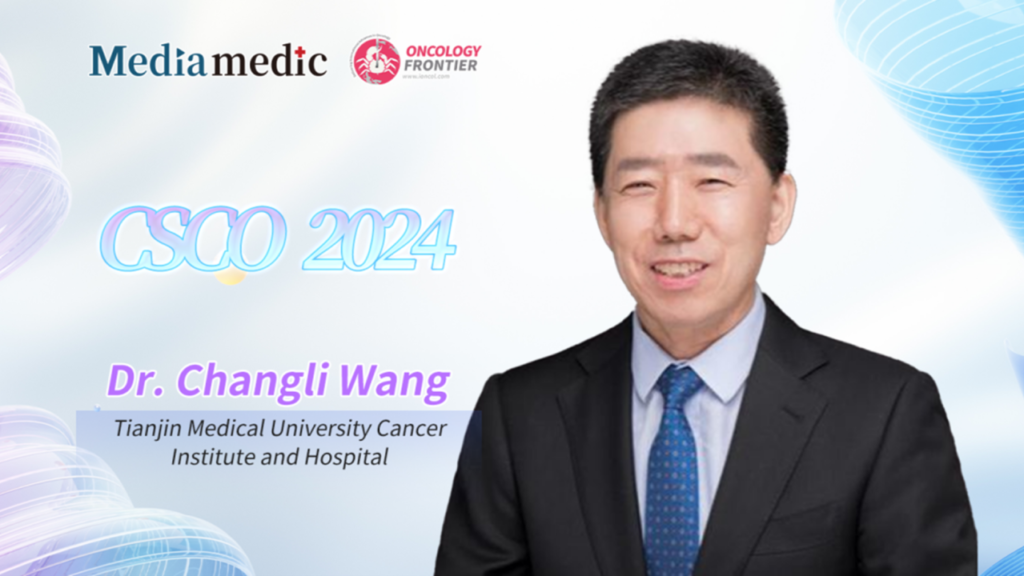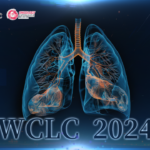
Editor's Note: The 27th Annual National Clinical Oncology Conference and 2024 CSCO Academic Annual Meeting, co-hosted by the Chinese Society of Clinical Oncology (CSCO) and the Beijing Xisike Clinical Oncology Research Foundation, took place in Xiamen from September 25 to 29, 2024. Multiple forums on lung cancer were held during the conference, summarizing the latest advances in lung cancer research globally. During the event, Oncology Frontier invited Dr. Changli Wang from Tianjin Medical University Cancer Institute and Hospital to interpret the main findings of the AK112-205 study and share insights into treatment strategies for resectable non-small cell lung cancer (NSCLC).01
At this CSCO conference, you presented the results of the AK112-205 study. What are your thoughts on the efficacy and safety of ivonescimab monotherapy or in combination with chemotherapy in the neoadjuvant/adjuvant treatment of resectable NSCLC?
Dr. Changli Wang: To date, clinical data on perioperative immunotherapy for NSCLC have been substantial, with six Phase III randomized controlled trials already reported. The AK112-205 study is a single-center, open-label, Phase II trial exploring the safety and efficacy of ivonescimab monotherapy or in combination with chemotherapy for NSCLC. The study includes two cohorts: Cohort 1 received ivonescimab monotherapy, while Cohort 2 involved the combination of ivonescimab with cisplatin/carboplatin and paclitaxel as neoadjuvant therapy. A total of 90 patients were enrolled: 11 in the monotherapy cohort and 49 initially reported in the combination cohort (as of February 2024), though actual enrollment reached 79 due to notable efficacy.
The study results demonstrated that the pathologic complete response (pCR) rate was 30% in the monotherapy cohort and 43.6% in the combination cohort, surpassing the 40.7% pCR rate observed in the RATIONALE-315 study (tislelizumab + chemotherapy). This indicates the remarkable efficacy of the combination approach with ivonescimab, though further follow-up is needed to observe changes in survival outcomes.
Regarding safety, ivonescimab, developed by Akeso Biopharma, is the world’s first bispecific antibody targeting PD-1 and VEGF. Given its anti-VEGF activity, concerns have been raised about potential or increased risks of hemoptysis. However, among the study participants, 75% had squamous cell carcinoma, and nearly 80% were advanced stage 3A patients, yet no unexpected bleeding or treatment-related adverse events (TRAEs) leading to surgery delays or cancellations were observed, highlighting the manageable safety profile of ivonescimab.
02
What clinical insights does this study provide for the treatment of resectable NSCLC?
Dr. Changli Wang: The AK112-205 study results set a new benchmark for efficacy compared to previous studies. This demonstrates that advances in innovative treatment strategies will bring more clinical benefits to patients, improving their quality of life.
From a product perspective, PD-1 and PD-L1 monoclonal antibodies as monotherapies are entering a plateau phase in perioperative immunotherapy. Ivonescimab, as a novel agent, has emerged as a significant focus in lung cancer research, particularly in perioperative treatment. In the future, we anticipate seeing more multi-targeted innovative drugs, antibody-drug conjugates (ADCs), and novel immunotherapies being studied for perioperative treatment, with more promising data to come.
03
For resectable NSCLC, how do you think clinicians should choose between adjuvant therapy, neoadjuvant therapy, and perioperative treatment approaches?
Dr. Changli Wang: Choosing between adjuvant therapy, neoadjuvant therapy, or a perioperative treatment approach for resectable NSCLC has been a long-debated topic.
In early clinical research, the CheckMate 816 study (nivolumab + chemotherapy) initiated neoadjuvant immunotherapy, followed by the CheckMate 77T study (nivolumab + chemotherapy), which employed a full perioperative treatment model of “neoadjuvant immunotherapy + surgery + adjuvant immunotherapy.” In 2023, results from five studies were published, and a comprehensive analysis of these studies showed no significant differences in pCR rates, with all achieving the primary endpoints, indicating similar efficacy.
The choice of treatment can be informed by long-term follow-up data. In the CheckMate 816 study, approximately 25% of patients who achieved pCR experienced disease progression within 2-3 years post-surgery, highlighting the importance of adjuvant therapy. In the CheckMate 77T study, even patients who achieved pCR received full-course treatment, yielding better event-free survival (EFS) outcomes. Furthermore, a standardized quality control system for pCR is still lacking, and regional variations exist, necessitating further refinement. Currently, there is insufficient clinical data to support the feasibility of post-surgical adjuvant immunotherapy, and more evidence is needed to confirm its clinical advantages.
Based on the available clinical research data and current practice, I personally believe that full-course perioperative immunotherapy offers better overall survival benefits for patients.
Dr. Changli Wang
- Chief Physician, Professor, and Doctoral Supervisor at the Department of Thoracic Oncology, Tianjin Medical University Cancer Institute and Hospital
- Head of the Department of Surgery at Tianjin Medical University Cancer Institute and Hospital
- Director of the Tianjin Lung Cancer Diagnosis and Treatment Center
- Honorary Chair of the Lung Cancer Professional Committee of the Chinese Anti-Cancer Association
- Deputy Editor-in-Chief of Chinese Journal of Clinical Oncology


